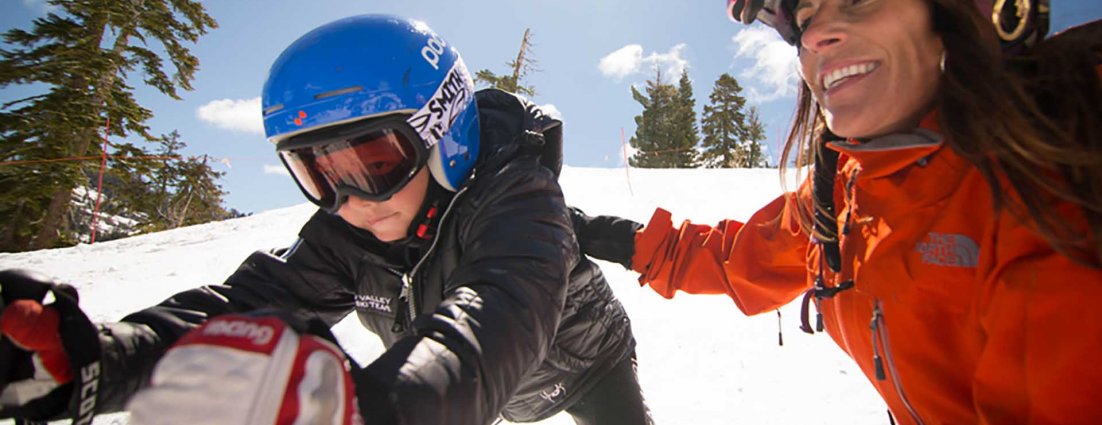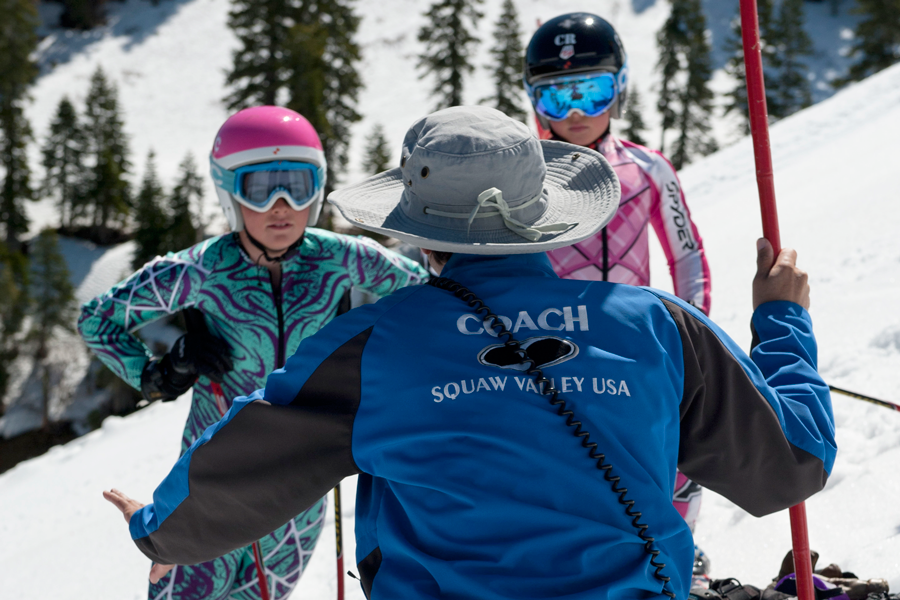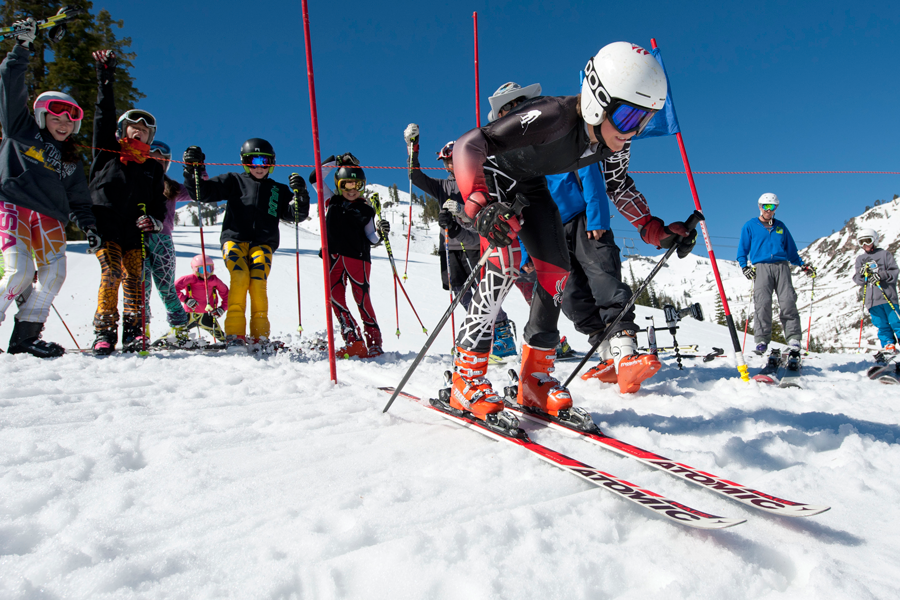Goal Setting That Really Works
03.10.2017 | Sean Higgins

If you were to round up any group of young skiers in the United States and ask them individually what their goals are, you’re bound to get more than a few “make the U.S. Ski Team” or “win an Olympic gold medal” answers. While all of that might seem fine on the surface, goal setting – especially long-term goal setting – for young athletes has a number of essential components that are all too easily overlooked by athletes, parents, and coaches alike.
U.S. Ski and Snowboard Association (USSA) Director of Sport Education Jon Casson is on a mission to redefine how athletes, parents, and coaches set and go about achieving goals during the season. In a society that values winning as much as ours does, it is easy to lose sight of the process that creates winners and instead fixate on the ultimate outcomes far too soon.
“As kids develop, in order to have them set reasonable goals for themselves, there needs to be a balance between process and outcome goals,” says Casson. “Process goals are really critical at those younger ages to understand that it’s about developing your skills and the process to reach those outcomes as opposed to the outcomes themselves.”
Casson says that although it is perfectly fine to have outcome-based goals, encouraging process-based goals on a daily basis at a young age will ultimately instill better goal-setting practices that athletes can take with them as they get older and outcome-specific goals become more important.

Dr. Nicole Detling is a Utah-based sports psychologist who works closely with a variety of U.S. Ski Team athletes and other individuals through her Head Strong Consulting firm. Her expertise had taken her to the 2010 and 2014 Winter Olympic Games, and she is now an Assistant Professor at the University of Utah’s Exercise and Sports Sciences Department.
Detling’s approach shares similarities with Casson’s but is unique in how she shies away from more traditional models of goal setting and instead focuses on why an athlete wants to achieve a goal and how they will ultimately get there.
“Athletes might come in and say, ‘I want to make the Olympic team,’ and I say, ‘Great. Who on your team doesn’t want to make the Olympic team?’ and they kind of look at me,” Detling says. “Just because you want to make the Olympic team doesn’t make you any more special. We talk a lot about answers to two questions: why and how.”
“Outcome and process is incredibly important, but I get as far away from the outcome as possible,” she continues. “So, if we get into the why and the how, that is more like those process goals. If somebody comes in and says that they want to win a gold medal, I’m going to ask why. I’m really working on getting down to the core root of something that is within their control and something that is very deep within them.
Everybody’s why might be completely different, and that’s OK, but if you don’t understand your why, when it gets really difficult, you’re going to be one of the first ones to give up.”

Detling stresses that one of the worst mistakes any athlete can make is allowing his or her ego to be directly tied to more outcome-oriented goals. If things don’t end up going their way on a particular day, the result could be a damaging blow to their self-confidence that could take an undue amount of time from which to recover.
“On the reverse of that, if you’re really attached to and connected with your why and those are the words you use on those days when things get harder, you’re more likely not just to just go through the motions and get it done, but to really get something out of the day,” says Detling.
Detling’s ‘how’ and Casson’s emphasis on process goals are essential pieces of the puzzle when it comes to ultimately achieving those outcome goals that so many athletes make for themselves.
“The more you’re connected with the moment and your ‘how’ in that moment and that’s where your mind is, the more likely you’re going to achieve whatever this outcome thing is that you’ve set for yourself,” explains Detling. “At the same time, if you don’t, you’re not devastated because if you were able to connect with getting on the edge of your ski in that moment and you had that ‘how’ feeling, you can look back and say that you were really disappointed that you didn’t get the outcome you wanted, but that turn felt amazing and I do think I got a little bit better today. If you can say that you got a little bit better today every single day, you walk away with pride and some level of satisfaction even if it’s not connected to that outcome that you really wanted.”
For parents and coaches, communication with the athlete and each other cannot be stressed enough if they want to see their athletes and children succeed. Managing the relationship triangle between athlete, parent, and coach can be one of the most daunting things about any athletic career, but with effective communication, success can be much more attainable.
“The key component is that parents and coaches need to be on the same page,” concludes Casson. “If that means a separate conversation or a conversation together with the athlete, they need to understand what the goals their children have are and how the coach is going to support those goals. Bringing the parents in and making them a partner is pretty critical in keeping them informed.”
“For the parents, help their kids find their why,” adds Detling. “It’s not the parents’ ‘why’ that matters as much as they might want it to. You better let them do it in their way because it’s not going to work if they do it your way. Keep believing in them, keep telling them that you believe in them. But if parents can understand their kid’s ‘why’ and help promote that kid’s ‘why’ and encourage the ‘how’, really be open to listening to their kids, it doesn’t mean that the kid won’t get to the point where they will also want that gold medal.”